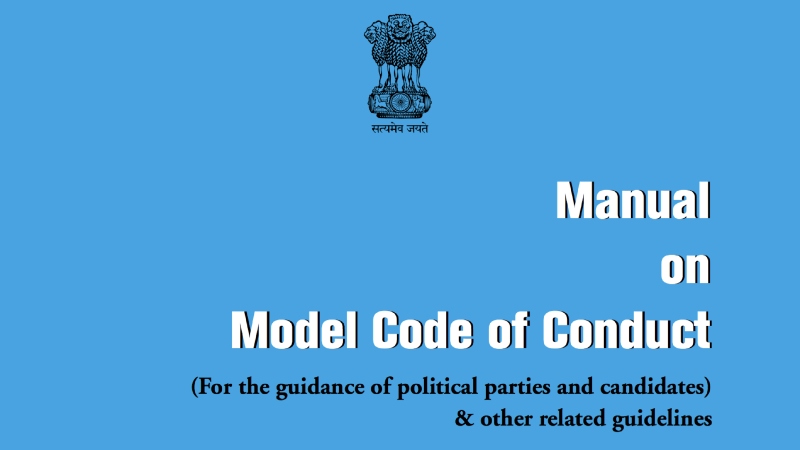
MCC is set of regulations governing behavior of candidates, political parties
Candidates, political entities mandated to strictly adhere to MCC stipulations
Election Commission introduced MCC during the 1962 Lok Sabha elections
Upon the announcement of Lok Sabha elections by the Election Commission of India, the Model Code of Conduct (MCC) is swiftly enforced, comprising a set of regulations governing the behavior of candidates and political parties throughout the electoral process. The primary objective of the MCC is to ensure the integrity and fairness of the elections until the declaration of results.
Candidates and political entities are mandated to strictly adhere to the MCC stipulations, and any breaches may result in punitive measures by the Election Commission. Notably, the MCC also imposes restrictions on governments from initiating any populist initiatives in the lead-up to the election.
What constitutes the Model Code of Conduct?
The Model Code of Conduct delineates guidelines issued by the Election Commission to oversee the campaign activities of political parties and candidates during elections. Its principal objective is to facilitate impartial and transparent elections by forestalling activities that could sway voters or disrupt the electoral process.
Implications of the Enforced Model Code of Conduct:
Historical Context of the Model Code of Conduct:
The inception of the Model Code of Conduct dates back to its utilization during the 1960 Assembly elections in Kerala. Subsequently, recognizing its efficacy, the Election Commission introduced it nationwide during the 1962 Lok Sabha elections. By the 1991 Lok Sabha elections, the Election Commission reinforced the implementation of the MCC, prompted by persistent violations of election norms and apprehensions regarding corrupt practices.

MCC is set of regulations governing behavior of candidates, political parties
Candidates, political entities mandated to strictly adhere to MCC stipulations
Election Commission introduced MCC during the 1962 Lok Sabha elections
Upon the announcement of Lok Sabha elections by the Election Commission of India, the Model Code of Conduct (MCC) is swiftly enforced, comprising a set of regulations governing the behavior of candidates and political parties throughout the electoral process. The primary objective of the MCC is to ensure the integrity and fairness of the elections until the declaration of results.
Candidates and political entities are mandated to strictly adhere to the MCC stipulations, and any breaches may result in punitive measures by the Election Commission. Notably, the MCC also imposes restrictions on governments from initiating any populist initiatives in the lead-up to the election.
What constitutes the Model Code of Conduct?
The Model Code of Conduct delineates guidelines issued by the Election Commission to oversee the campaign activities of political parties and candidates during elections. Its principal objective is to facilitate impartial and transparent elections by forestalling activities that could sway voters or disrupt the electoral process.
Implications of the Enforced Model Code of Conduct:
Historical Context of the Model Code of Conduct:
The inception of the Model Code of Conduct dates back to its utilization during the 1960 Assembly elections in Kerala. Subsequently, recognizing its efficacy, the Election Commission introduced it nationwide during the 1962 Lok Sabha elections. By the 1991 Lok Sabha elections, the Election Commission reinforced the implementation of the MCC, prompted by persistent violations of election norms and apprehensions regarding corrupt practices.
